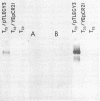Abstract
A genetic transformation system for an industrial wine yeast strain is presented here. The system is based on the acquisition of cycloheximide resistance and is a direct adaptation of a previously published procedure for brewing yeasts (L. Del Pozo, D. Abarca, M. G. Claros, and A. Jiménez, Curr. Genet. 19:353-358, 1991). Transformants arose at an optimal frequency of 0.5 transformant per microgram of DNA, are stable in the absence of selective pressure, and produce wine in the same way as the untransformed industrial strain. By using this transformation protocol, a filamentous fungal beta-(1,4)-endoglucanase gene has been expressed in an industrial wine yeast under the control of the yeast actin gene promoter. Endoglucanolytic wine yeast secretes the fungal enzyme to the must, producing a wine with an increased fruity aroma.
Full text
PDF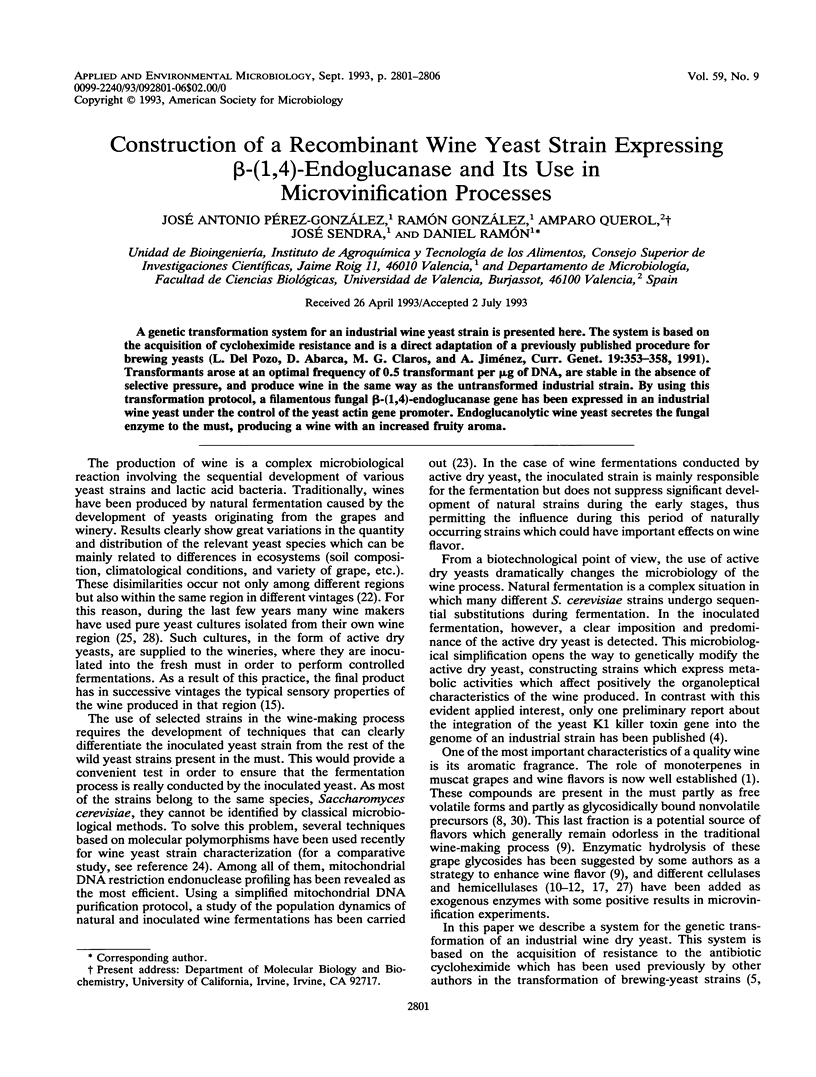
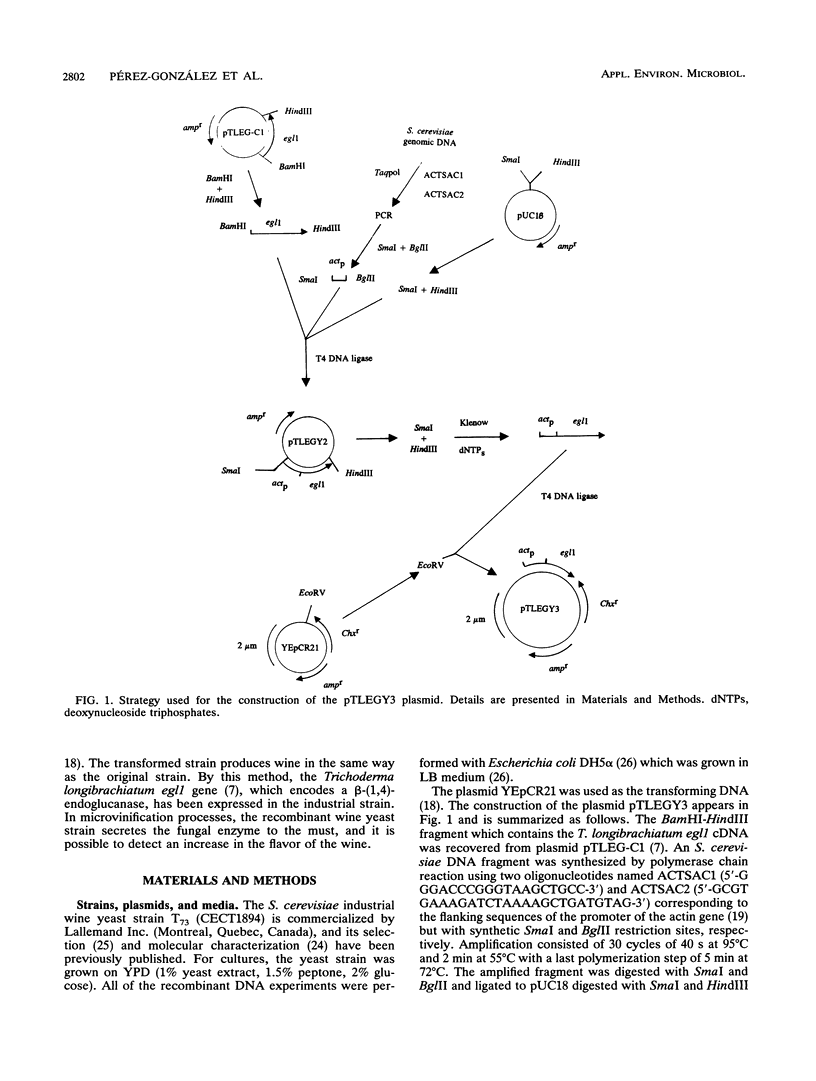
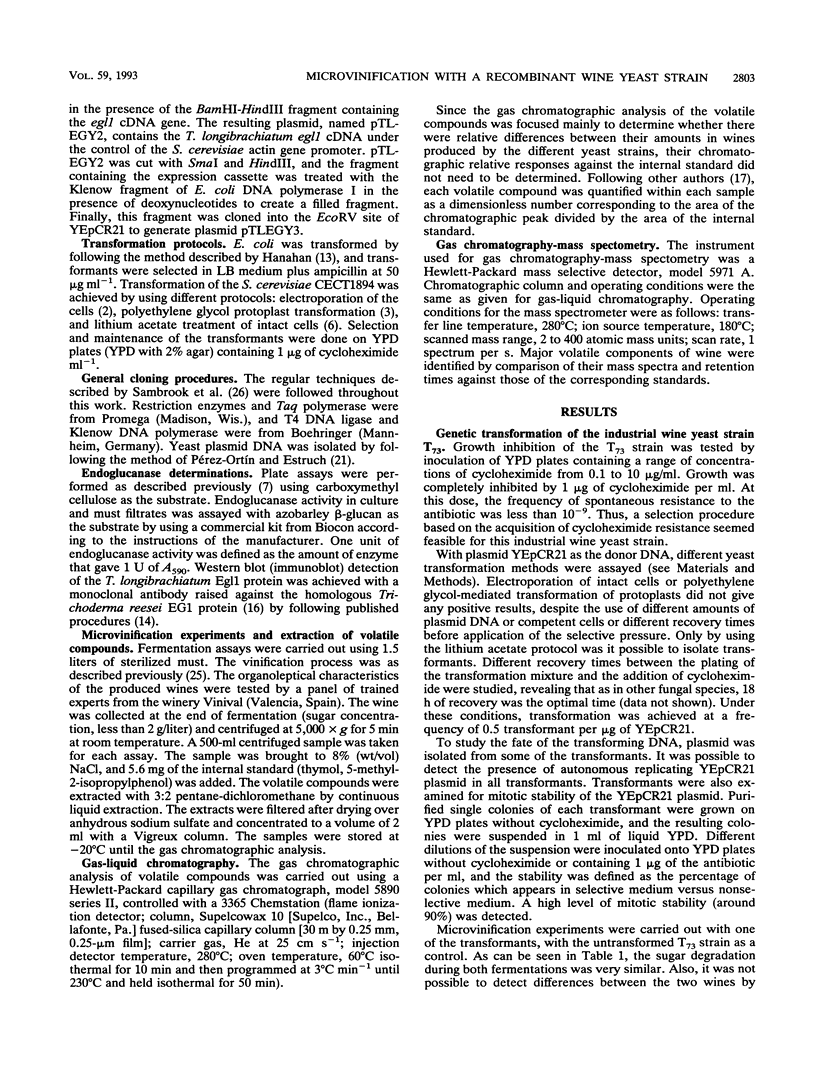
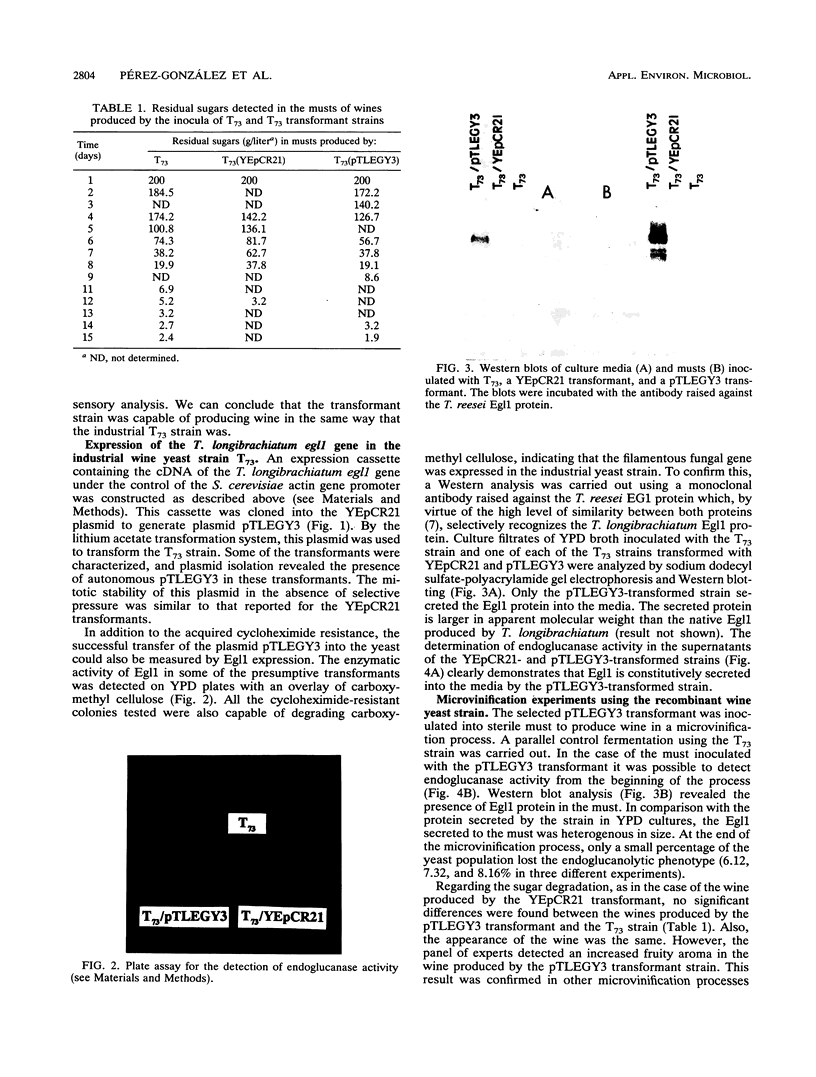
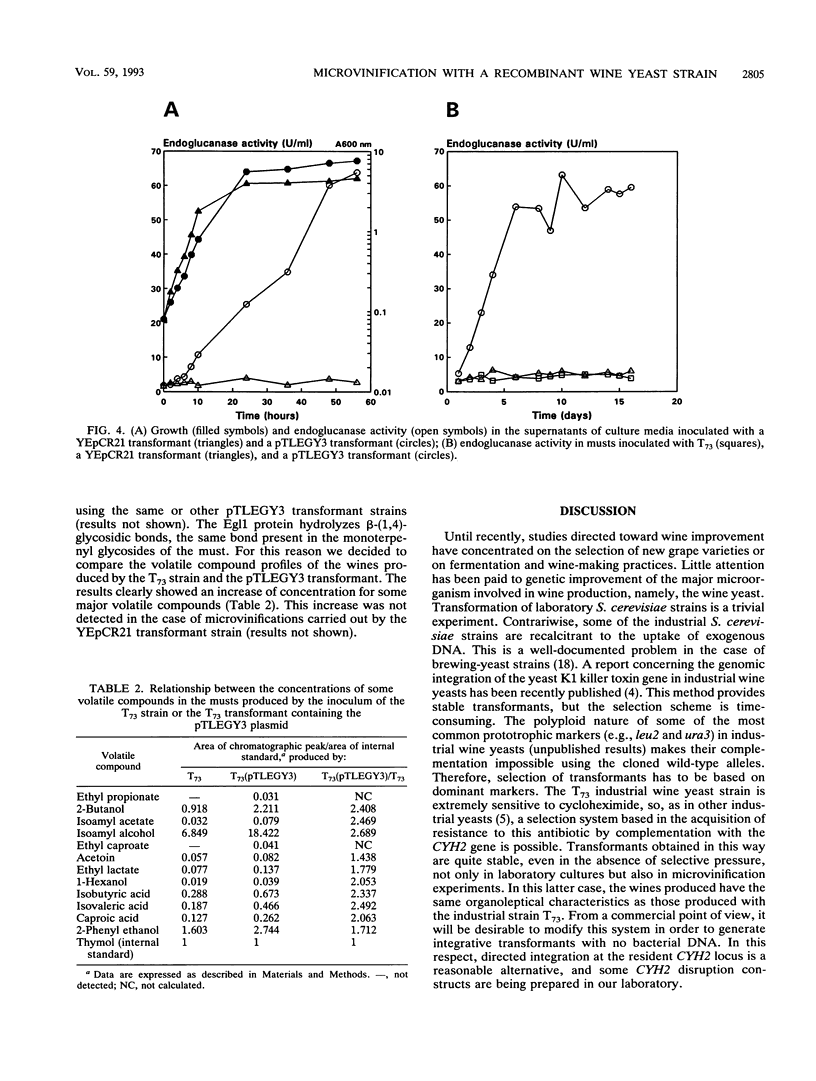
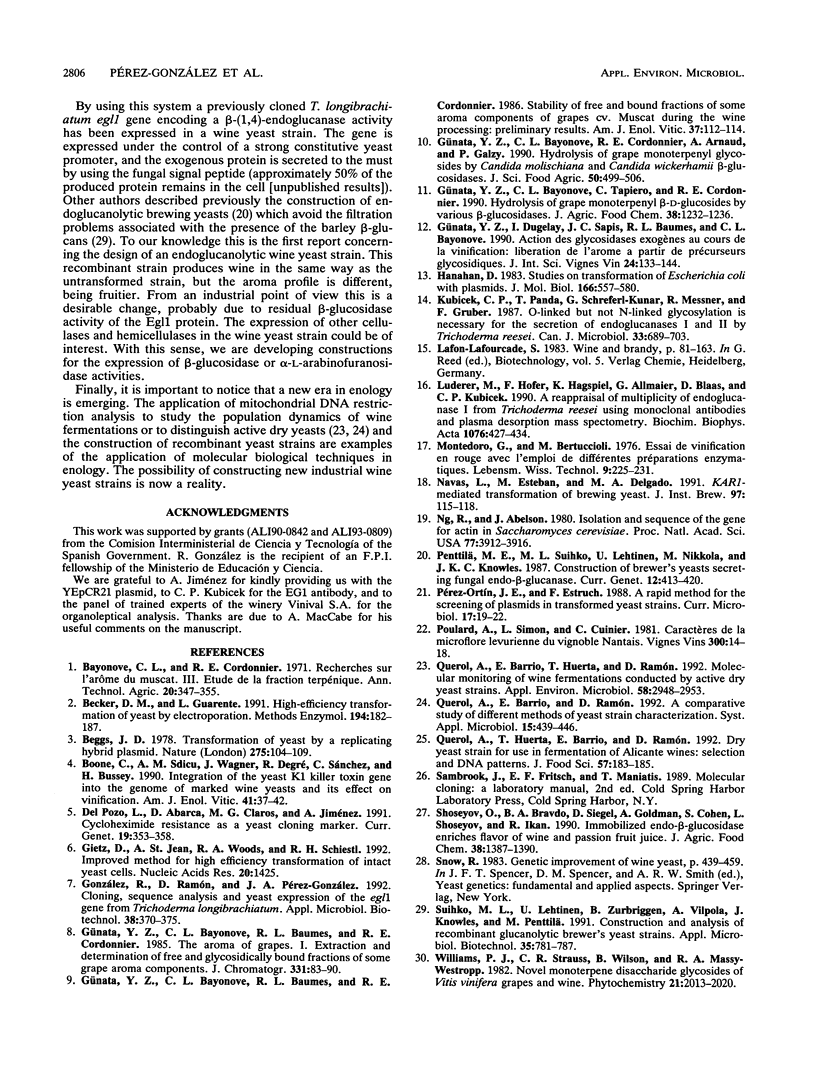
Images in this article
Selected References
These references are in PubMed. This may not be the complete list of references from this article.
- Becker D. M., Guarente L. High-efficiency transformation of yeast by electroporation. Methods Enzymol. 1991;194:182–187. doi: 10.1016/0076-6879(91)94015-5. [DOI] [PubMed] [Google Scholar]
- Beggs J. D. Transformation of yeast by a replicating hybrid plasmid. Nature. 1978 Sep 14;275(5676):104–109. doi: 10.1038/275104a0. [DOI] [PubMed] [Google Scholar]
- Gietz D., St Jean A., Woods R. A., Schiestl R. H. Improved method for high efficiency transformation of intact yeast cells. Nucleic Acids Res. 1992 Mar 25;20(6):1425–1425. doi: 10.1093/nar/20.6.1425. [DOI] [PMC free article] [PubMed] [Google Scholar]
- González R., Ramón D., Pérez-González J. A. Cloning, sequence analysis and yeast expression of the egl1 gene from Trichoderma longibrachiatum. Appl Microbiol Biotechnol. 1992 Dec;38(3):370–375. doi: 10.1007/BF00170088. [DOI] [PubMed] [Google Scholar]
- Hanahan D. Studies on transformation of Escherichia coli with plasmids. J Mol Biol. 1983 Jun 5;166(4):557–580. doi: 10.1016/s0022-2836(83)80284-8. [DOI] [PubMed] [Google Scholar]
- Luderer M. E., Hofer F., Hagspiel K., Allmaier G., Blaas D., Kubicek C. P. A re-appraisal of multiplicity of endoglucanase I from Trichoderma reesei using monoclonal antibodies and plasma desorption mass spectrometry. Biochim Biophys Acta. 1991 Feb 15;1076(3):427–434. doi: 10.1016/0167-4838(91)90487-k. [DOI] [PubMed] [Google Scholar]
- Ng R., Abelson J. Isolation and sequence of the gene for actin in Saccharomyces cerevisiae. Proc Natl Acad Sci U S A. 1980 Jul;77(7):3912–3916. doi: 10.1073/pnas.77.7.3912. [DOI] [PMC free article] [PubMed] [Google Scholar]
- Querol A., Barrio E., Huerta T., Ramón D. Molecular monitoring of wine fermentations conducted by active dry yeast strains. Appl Environ Microbiol. 1992 Sep;58(9):2948–2953. doi: 10.1128/aem.58.9.2948-2953.1992. [DOI] [PMC free article] [PubMed] [Google Scholar]
- del Pozo L., Abarca D., Claros M. G., Jiménez A. Cycloheximide resistance as a yeast cloning marker. Curr Genet. 1991 May;19(5):353–358. doi: 10.1007/BF00309595. [DOI] [PubMed] [Google Scholar]




